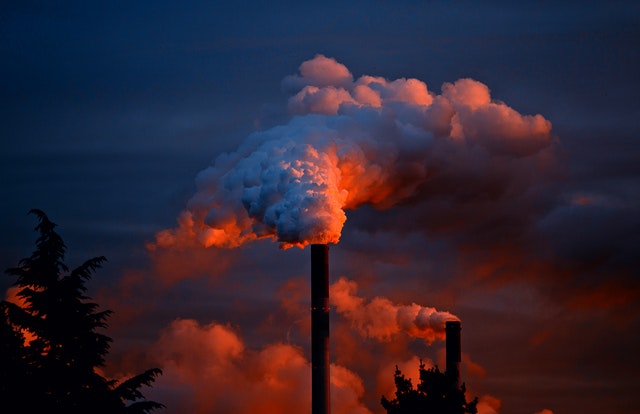The South African government has the legal battle of the century coming its way after years of failing to manage some of the worst air pollution in the world emitted by Sasol refineries and Eskom power plants.
An environmental rights organisation called groundWork along with the Vukani Environment Justice Movement in Action has filed a case in the Pretoria High Court to sue the government, according to a statement by their lawyers, the Centre for Environmental Rights.
“groundWork and Vukani, represented by the Centre for Environmental Rights (CER) [3], claim that Government has violated the Constitutional right to a healthy environment for the people living and working in the Highveld Priority Area (HPA) by failing to improve the deadly levels of air pollution in the HPA,” the statement reads.
The Highveld Priority Area (HPA) in question forms part of the Mpumalanga province as well as Gauteng. Within this area 12 coal-fed Eskom power plants, a coal-to-fuel plant and a Sasol oil refinery can be found.
This area is largely responsible for most of South Africa’s coal mining production; as much as 83% is produced in the area.
In 2007 the HPA was designated by then Minister of Environmental Affairs due to its poor air quality and in 2012, the Minister published an air quality management plan (AQMP), but very little has been done to improve conditions in the area since then.
“Living in Witbank, one of the most polluted areas in the country, has hugely affected our health and lives. Both government and industry have continuously failed to deal with the problem, irrespective of our efforts to engage with them to ensure they take steps to protect human health. Together with groundWork, Vukani has decided to use litigation to push government to take urgent steps to deal with the high air pollution and in the interest of our health and to protect our right to clean air”, says Vusi Mabaso, Vukani Chairperson.
Bobby Peek, Director of groundWork, says, “groundWork and the communities we represent have consistently been highlighting the issue of air pollution and its negative impacts on human health, and our lived experience is that government is not holding the big polluters to account. This is a public health crisis that can no longer be ignored.”
The pollution emitted by the plants has been linked to conditions such as cancer and strokes; the plants’ fumes contain fine particles as well as sulfur dioxide and mercury, which can cause various illnesses.
After receiving a report by the Centre for Environmental Rights in collaboration with groundWork and the Highveld Environmental Justice Network in 2017 that outlines the failures of the government with regards to the pollution levels of the air as well as suggests solutions, the Minister of Environmental Affairs eventually responded to these demands on May 9 2019, saying “Desired improvements will not happen over a short period of time, but rather progressively over time.”
The Minister indicated that it is not necessary to make regulations to implement and enforce the HPA AQMP, as the plan is simply one of several tools that could address and improve air pollution.
With the government having had more than 12 years to put adequate measures in place to ensure the health and happiness of residents, Vukani and groundWork feel it has truly failed its people.
“The Environmental Affairs Minister is now required by early July 2019 to make available all the records relating to her decision not to promulgate regulations to make the HPA AQMP enforceable, and the reasons for this decision. groundWork and Vukani can then amend and supplement their application within 10 working days. If the respondents – the Minister, the National Air Quality Officer, the President, and the two relevant MECs in Gauteng and Mpumalanga – intend to oppose this litigation, they are required to file their notice of opposition by early July 2019,” said the Centre for Environmental Rights in a statement.
Picture: Pexels
Source: https://cer.org.za

